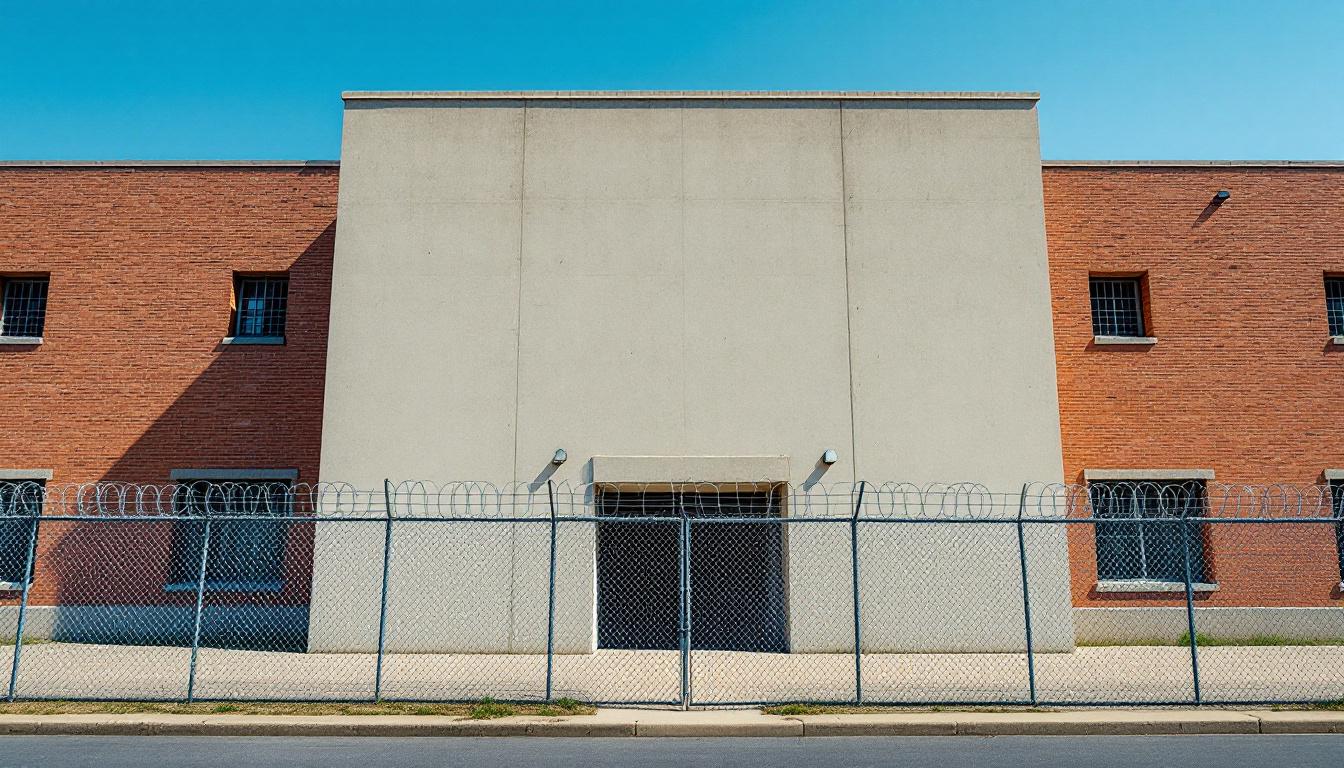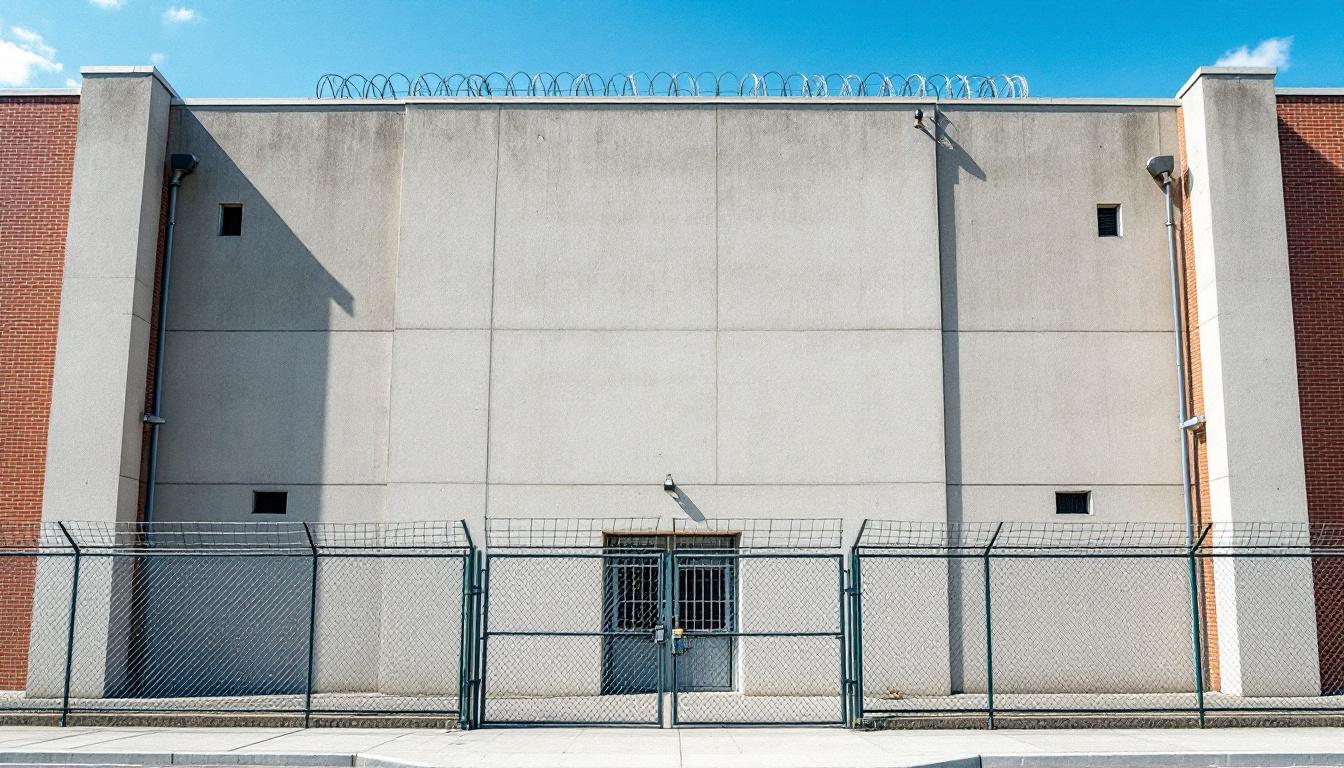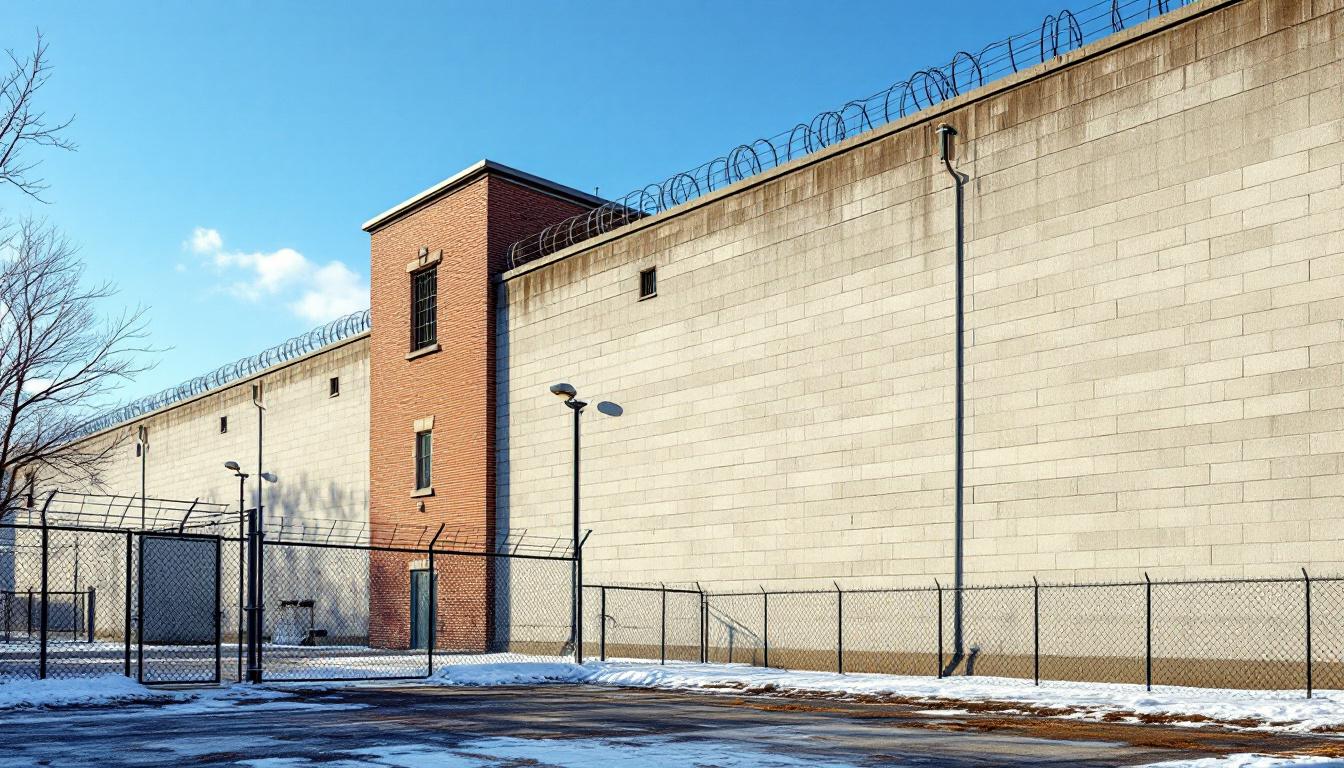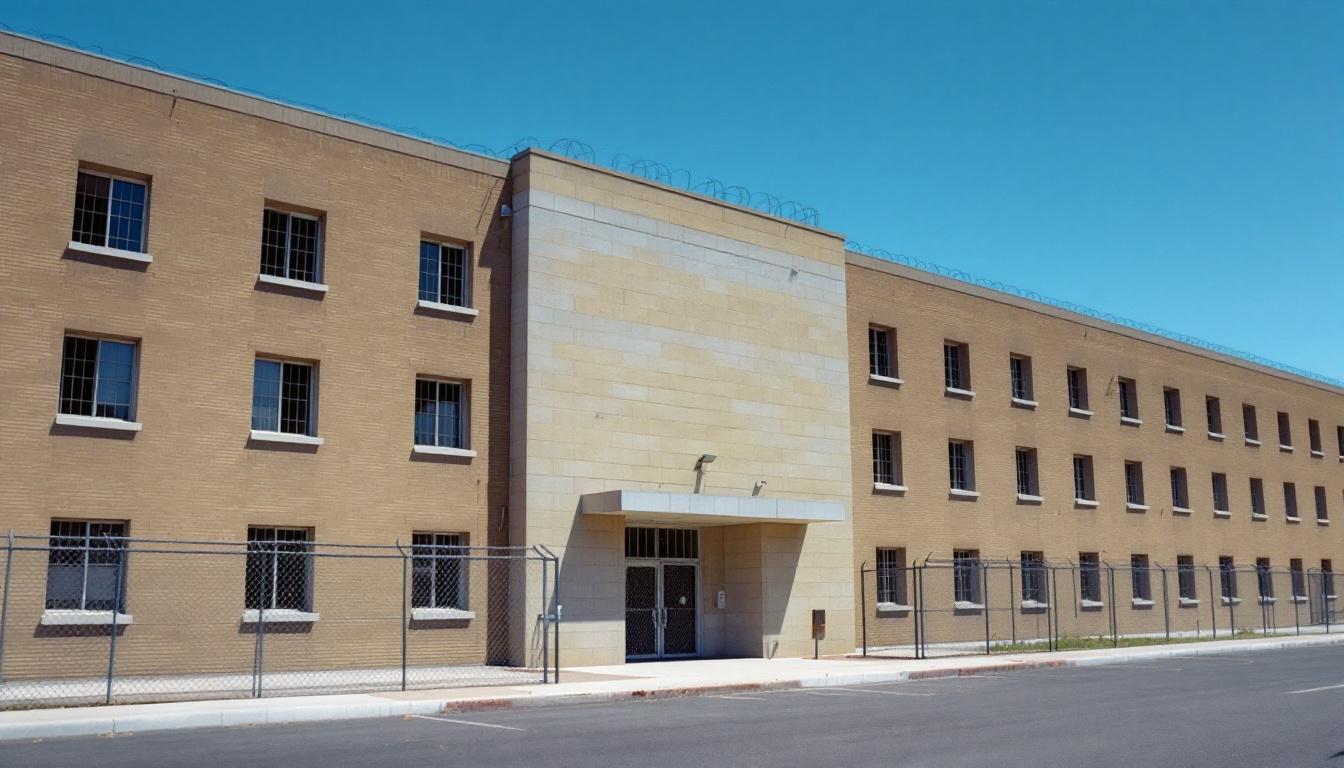
Quick Navigation
How to contact an inmate at Whatcom County Sheriff's Office and Jail
This comprehensive guide will walk you through how to connect with an inmate at Whatcom County Sheriff's Office and Jail. Follow the steps below to find an inmate and send letters and photos:
- Search for the inmate using our search tool below
- Create your account or log in to Penmate
- Write your message (up to 6,000 characters)
- Send instantly - inmates receive printed copies daily
Find an Inmate
Search for an inmate to start communicating today
Tip: You can search by first name, last name, or inmate ID number
To contact a person at Whatcom County Sheriff's Office and Jail start by searching for the person on the official facility website. Perform a search by following these steps:
- Step 1: Enter their first name and last name into the search form and click "Search"
- Step 2: Locate their inmate record
- Step 3: Write down their Inmate ID and any housing information provided
Important! Be sure to enter the person's full name. Nicknames should not be used.
How to Send Messages to Inmates

You can use your phone or computer to send emails, letters, and photos to an inmate. Messages are sent electronically to inmate tablets or kiosks at the facility. If you would like to send a message, start by searching for an inmate at Whatcom County Sheriff's Office and Jail.
Sending Photos and Postcards

A great way to send love and support to a loved one at Whatcom County Sheriff's Office and Jail is to send photos and postcards. It only takes a few minutes to send photos from your phone and it makes a huge difference. You can also mail postcards with words of support and inspiration, or design your own postcard for special moments like birthdays and holidays.
Important! Be sure not to send any explicit photos or they may not be approved by the facility. You can also use a photo printing app like Penmate to make sure your photos are printed at the correct size (4x6 or 3x5) and are mailed according to the rules and regulations of Whatcom County Sheriff's Office and Jail.
Frequently asked questions about Whatcom County Sheriff's Office and Jail
-
How long does it take to deliver a message?
If you're sending an email message your letter is usually delivered within 24-48 hours. For messages sent via mail you should expect delivery within 3-7 days. All messages will need be approved by Whatcom County Sheriff's Office and Jail.
-
How much does it cost to send a message to Whatcom County Sheriff's Office and Jail?
You can send a message free using your phone or mail a message via USPS for the price of a $0.60 stamp and envelope. You can also purchase credits or e-stamps from services starting at $1.99.
-
What services can I use to contact an inmate at Whatcom County Sheriff's Office and Jail?
Penmate
You can use Penmate to send letters and photos to an inmate from your phone. It's an easy way to stay in touch during your loved one's incarceration. Use the inmate locator to find an inmate's location and contact information, then you can send messages within a few minutes.
Securus messaging
Securus may be another option for communicating with an inmate at Whatcom County Sheriff's Office and Jail. You can create a friends and family account and purchase credits to send messages. All messages will be reviewed and must be approved by the facility.
JPay
Some county jails and state prisons may support sending messages with JPay. You must register an account with the system, find your loved one, and purchase stamps to send messages. For some locations you can also attach photos.
Smart Jail Mail
You may also check if Smart Jail Mail is available at Whatcom County Sheriff's Office and Jail. Smart Jail Mail is operated by Smart Communications and has contracted with some state and county jails. After purchasing credits, your messages and photos are sent to the facility, printed out, and then handed out to your loved one.
-
What is the mailing address of Whatcom County Sheriff's Office and Jail?
Mailing address:
Whatcom County Sheriff's Office and Jail
311 Grand Ave
Bellingham, WA 98225
Phone: (360) 778-6600Business hours:
- Monday: 8:30 AM – 4:30 PM
- Tuesday: 8:30 AM – 4:30 PM
- Wednesday: 8:30 AM – 4:30 PM
- Thursday: 8:30 AM – 4:30 PM
- Friday: 8:30 AM – 4:30 PM
- Saturday: Closed
- Sunday: Closed
-
What are the visiting hours at Whatcom County Sheriff's Office and Jail?
Visiting hours at Whatcom County Sheriff's Office and Jail vary by housing unit and security level. Generally, visits are scheduled on weekends and holidays, with some facilities offering weekday visits. Contact the facility directly at (360) 778-6600 or check their website for the current visiting schedule. Visits typically last 30-60 minutes and must be scheduled in advance.
-
What items are prohibited when sending mail to Whatcom County Sheriff's Office and Jail?
Prohibited items typically include: cash, personal checks, stamps, stickers, glitter, glue, tape, staples, paperclips, polaroid photos, musical or blank greeting cards, hardcover books, magazines with staples, and any items containing metal or electronics. Only send letters on plain white paper with blue or black ink. Photos must be printed on regular photo paper (no Polaroids). Always check with Whatcom County Sheriff's Office and Jail for their specific mail policies.
-
How do I send money to an inmate at Whatcom County Sheriff's Office and Jail?
You can send money to an inmate at Whatcom County Sheriff's Office and Jail through several methods: 1) Online using JPay, Access Corrections, or the facility's approved vendor, 2) Money orders mailed directly to the facility with the inmate's name and ID number, 3) Kiosks located in the facility lobby, or 4) Over the phone using a credit or debit card. Fees vary by method, typically ranging from $2.95 to $11.95 per transaction.
-
Can I schedule a video visit with an inmate at Whatcom County Sheriff's Office and Jail?
Many facilities now offer video visitation as an alternative to in-person visits. At Whatcom County Sheriff's Office and Jail, video visits may be available through services like Penmate, Securus Video Connect, GTL, or ICSolutions. Video visits typically cost $10-20 for 20-30 minutes and must be scheduled in advance. You'll need a computer or smartphone with a camera and reliable internet connection. Contact the facility for their specific video visitation policies and approved vendors.
-
What identification do I need to visit an inmate at Whatcom County Sheriff's Office and Jail?
All visitors must present valid government-issued photo identification such as a driver's license, state ID, passport, or military ID. Minors must be accompanied by a parent or legal guardian who can provide the minor's birth certificate. Some facilities require visitors to be on the inmate's approved visitation list, which may require a background check. Contact Whatcom County Sheriff's Office and Jail for specific ID requirements and visitor approval procedures.
-
How can I find out an inmate's release date?
To find an inmate's release date at Whatcom County Sheriff's Office and Jail, you can: 1) Use the online inmate search tool if available, 2) Call the facility's records department, 3) Contact the inmate's case manager or counselor, or 4) Have the inmate provide this information during a call or visit. For privacy reasons, some facilities only release this information to immediate family members.
Facility Overview
Contact Information
Whatcom County Sheriff's Office and Jail311 Grand Ave
Bellingham, WA 98225
Phone: (360) 778-6600
Official Website

About Whatcom County Sheriff's Office and Jail
Community partnerships and comprehensive support services form the foundation of what Whatcom County Jail, WA offers to individuals navigating the correctional system in Bellingham. Rather than operating in isolation, this WA correctional facility typically works alongside local organizations to create pathways that extend well beyond traditional detention, recognizing that meaningful change often emerges through collaborative efforts that address underlying challenges while individuals serve their time.
The facility's approach to individuals services generally reflects the Pacific Northwest's emphasis on community-centered solutions and rehabilitation-focused programming. Located in Bellingham, the county jail typically provides access to educational opportunities, substance abuse counseling, and mental health support that may help participants develop practical skills for successful reentry. These programs often include partnerships with regional service providers who understand the unique challenges faced by residents returning to Whatcom County communities, creating continuity of care that extends from incarceration through release.
Historical context shapes much of how the facility operates within Washington's broader correctional framework, as county jails have evolved to serve not only as detention centers but as crucial intervention points where individuals may access resources that address root causes of criminal behavior. The jail's role in Bellingham's justice system typically emphasizes connecting participants with community-based organizations, workforce development programs, and housing assistance that can provide stability upon release, reflecting a growing understanding that successful reintegration benefits both individuals and the broader community they return to.
Programs & Services
Building skills and addressing personal challenges form the foundation of opportunities available to individuals at Whatcom County Jail. The facility typically recognizes that meaningful change requires access to diverse resources that address both immediate needs and long-term goals. Through a range of structured opportunities, individuals may work toward personal development while preparing for successful community reintegration.
Educational advancement and skill-building opportunities often include comprehensive education services designed to help individuals continue their learning journey. ESL (English as Second Language) instruction may be available for those seeking to improve their communication abilities. Also, vocational programs typically provide hands-on training in practical skills, while work programs often allow individuals to gain valuable experience and develop workplace readiness. These opportunities may include specialized training in areas such as painting and decorating, which can translate into marketable skills upon release.
Therapeutic and support services typically complement the educational offerings through targeted interventions. Anger management opportunities may help individuals develop healthier coping strategies and communication techniques. The facility often emphasizes that participation in these various opportunities can contribute to personal growth and positive behavioral changes. Through this comprehensive approach, individuals may access the tools and support needed to address underlying issues while building practical skills for their future.
Daily Life & Visitation

The sound of breakfast preparation typically signals the start of each day for individuals housed within the facility's walls. At present, the daily routine actively revolves around structured meal times, security counts, and scheduled programming activities. Individuals generally wake early for breakfast service, followed by housing unit cleaning responsibilities and preparation for various programs or work assignments throughout the day.
Living accommodations typically consist of shared cells or dormitory-style housing units, where individuals may have access to basic amenities including bedding, personal hygiene items, and limited personal property storage. The facility generally provides three meals daily in designated dining areas, with menu options that meet basic nutritional requirements. Also, individuals usually have access to commissary services where they can purchase additional food items, hygiene products, and writing materials using funds from their accounts.
Recreation opportunities often include access to exercise areas, television viewing in common spaces, and library services when available. However, visitation policies typically allow for scheduled visits with family members and approved contacts, while phone access generally enables regular communication with loved ones during designated hours. Work assignments may offer structure through facility maintenance tasks, kitchen duties, or laundry services, providing individuals with daily responsibilities and potential skill development. Programming schedules usually include educational opportunities, substance abuse counseling, and other rehabilitative services designed to support individuals during their time at the facility.
Ready to Connect?
Start communicating with your loved one today
Search for an Inmate








